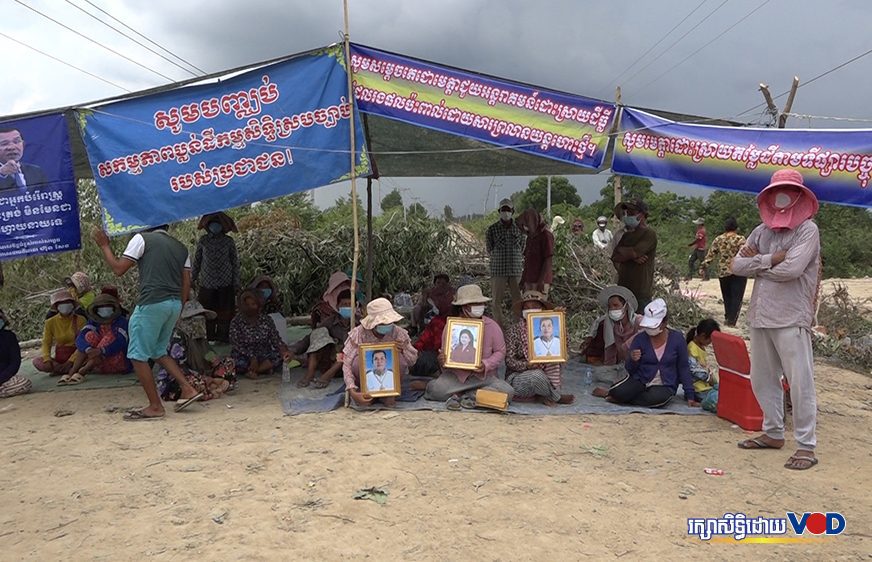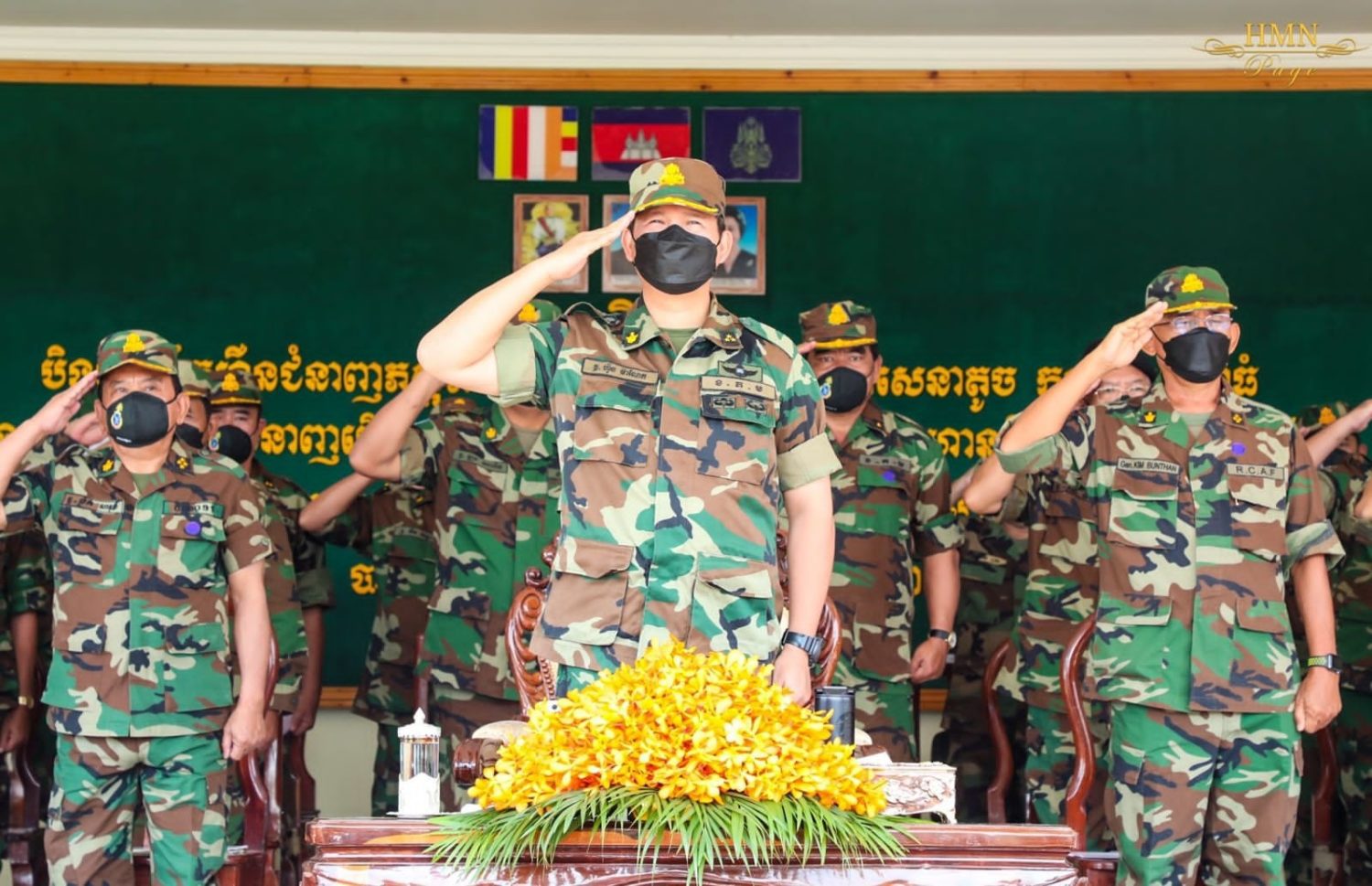A standoff between residents on land earmarked for Phnom Penh’s new international airport against developers and authorities continues, as the gulf between the land’s rising value and authorities’ insistence on paying only pre-development prices as compensation widens.
Tuon Vannak, a resident in Kandal province’s Kandal Stung district, said it has been a back and forth between the company bringing out heavy machinery to clear the residents’ land, and about 100 villagers coming out to camp out and protest.
About 100 residents gathered again on Monday morning in Boeng Khyang commune till about midday, he said.
“We have gathered on the land involved with conflict, but the company knows the plan, so it did not send [the machines]. This may be their strategy to make us waste time, or they are ready to do it, but seeing that our strength is high, they move back,” Vannak said.
“I guess maybe tomorrow or the day after tomorrow, they will do it because we cannot come together with large numbers every day. We are busy.” Vannak added that he had about 2.5 hectares of land.
Khim Maly said residents wanted the developers to simply pay market price for the land. Land values had shot up from the $8 per square meter that authorities were offering to about $80 to $120 per square meter now since the airport project was announced.
The project, run by a joint venture between the Civil Aviation agency and the Overseas Cambodia Investment Corporation, received about 2,600 hectares of state land last year, with plans including a sprawling “airport city” development project. OCIC is also the developer of Phnom Penh’s Koh Pich island.
Maly said people would accept market price, which equates to roughly $1 million per hectare.
“They [have] to come down to meet with us,” she said. “[We] are asking for a solution that is appropriate to the market.”
Kandal provincial governor Kong Sophorn said the land in the area was worth only $3 to $8 per square meter before the project’s announcement.
“But they do not accept it,” Sophorn said of the authorities’ offer of $8.
Families can also get other land in the same district, he added.
If the standoff continued, “then we have no choice,” Sophorn said. “Then it will come down to the obligation option because we have to have obligations too. Can’t say no to obligations. And [there’s the possibility] of using the Expropriation Law and so on.”
Vann Sophat, project coordinator for the Cambodian Center for Human Rights, however, pointed out that expropriation is legally contingent on proper compensation.
“In the Constitution, in the Land Law, in the Law on Expropriation, or wherever, if the state needs for a development for the public [benefit], the state can take it, but it can’t be taken until there is proper compensation that can be accepted from the owner,” Sophat said.
(Translated and edited from the original article on VOD Khmer)













